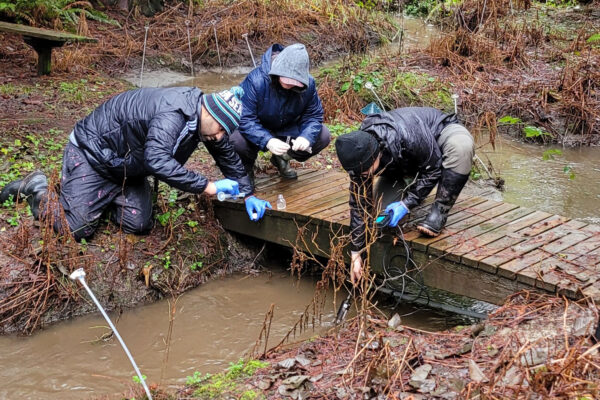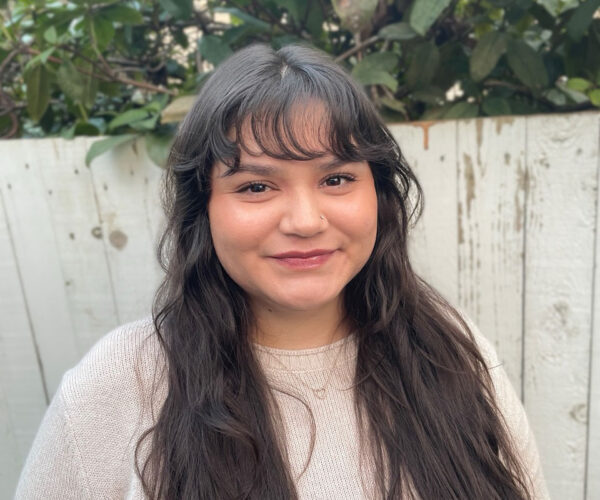Internships can be an invaluable part of the undergraduate experience. Students get hands-on skills and make connections that can help launch their careers.
But the benefits don’t stop there. Often, the impact cascades well beyond the students’ lives to help local organizations and communities — even the planet.
Such was the case when a group of students from the University of Washington Bothell joined the first cohort of an internship launched by the Lake Forest Park Stewardship Foundation. This past year, students supported ongoing stream monitoring efforts by establishing baselines for two urban watersheds in Northern King County.
“Our goals for this internship were for students to learn how stream health is monitored and think about why urban streams, in particular, degrade,” said Dr. Dana Campbell, a lecturer in UW Bothell’s School of STEM.
“We also wanted students to have a sense of purpose with this internship, which is an uncommon and invaluable opportunity to gain field skills and experience relevant for careers in conservation and environmental biology.”
Digging deep with partners
Brian Saunders grew up in Lake Forest Park, Washington, where he recalls fishing and watching salmon spawn along the banks of McAleer Creek. Over the years, he noticed a deterioration of the creek’s health. When he became a board member of the LFP Stewardship Foundation, he wanted to do something about it.
He decided to lead the Streamkeepers, a citizen action group created in the early 2000s as a product of the Sno-King Watershed Council water quality training program. Studies suggested a slow decline of two major urban creeks in the area, and Saunders wanted to dig deeper.
“One of the big questions that troubled me was, ‘How do the smaller tributaries that feed into the main creeks of Lake Forest Park affect their health, and do they equally adversely affect them?’”
Hoping to find the answers, he applied for a King County WaterWorks grant that later led to the beginning of the Urban Stream Ecology Internship and Training program. The program kicked off last year with its first cohort of students from UW Bothell, North Seattle College and Shoreline Community College.
“The first year was amazing,” Saunders said. “Our first cohort of students performed beyond our expectations. Students not only gained valuable skills in conducting field experiments and testing water quality methods, they also learned team collaboration and organization.”
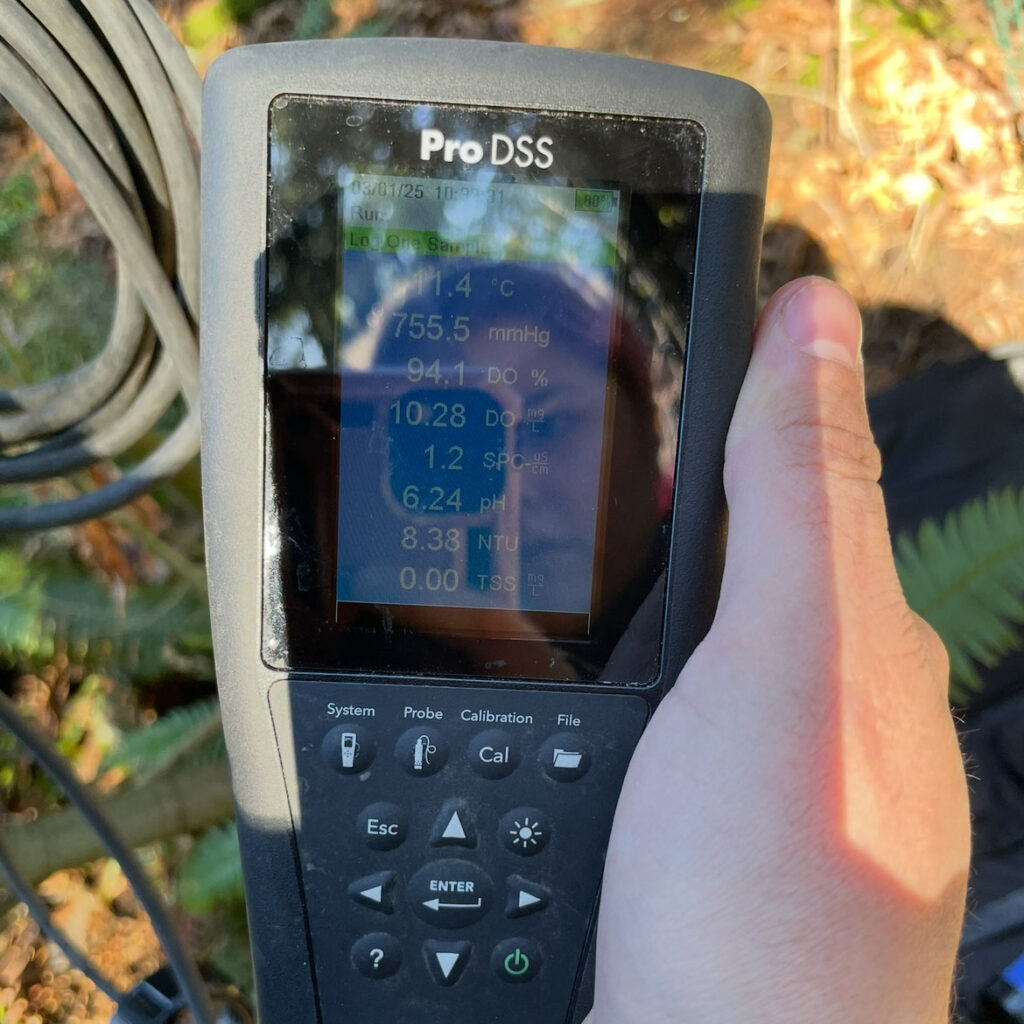
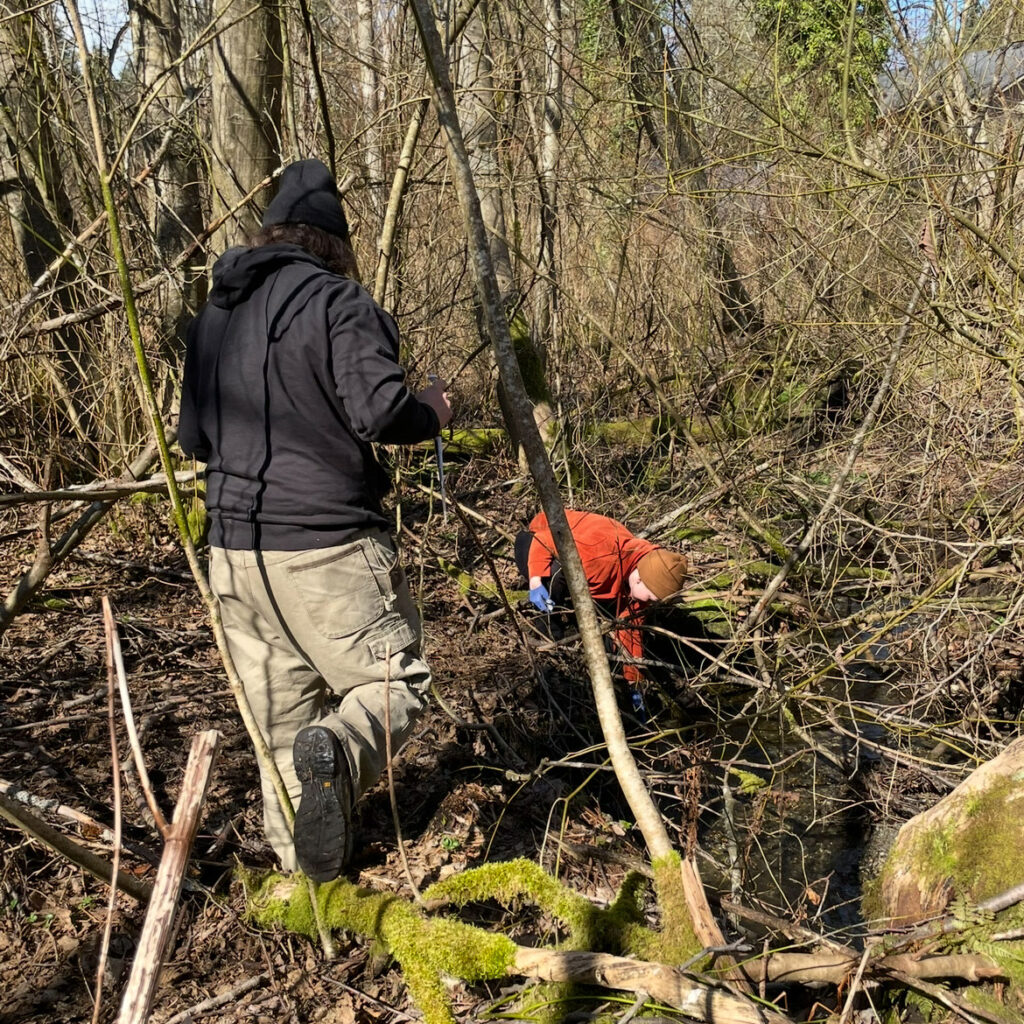
Being keepers of the streams
Campbell had already been carrying out chemical, physical and biological monitoring of sites around McAleer and Lyons creeks for several years alongside Saunders and Dr. Tracy Furutani, a Lake Forest Park City Council member and physics instructor at North Seattle College. When the USE-IT program launched, they each mentored a group of students from the cohort.
While the internship is especially geared toward students pursuing conservation and environmental science-related degrees, students from a variety of majors were attracted to the program to apply their passion for the environment, regardless of their career goals.
One such student is Sreeman Mandapati, a senior at UW Bothell majoring in Biology and minoring in Neuroscience and Health Studies.
While Mandapati is on a pre-med track, he said he has a personal interest in ecology. “I’ve always been interested in the environment and want to make sure we’re protecting it. The Skykomish River is right next to my backyard, and every day I enjoy the beauty of it. And I would be disappointed if something bad happened to it.
“The internship really interested me because I looked at it from an urban ecology perspective and how humans are impacting the environment,” he said. “And beyond water quality and how humans impact it, I saw the bigger picture of how it really is important how we treat our streams.”
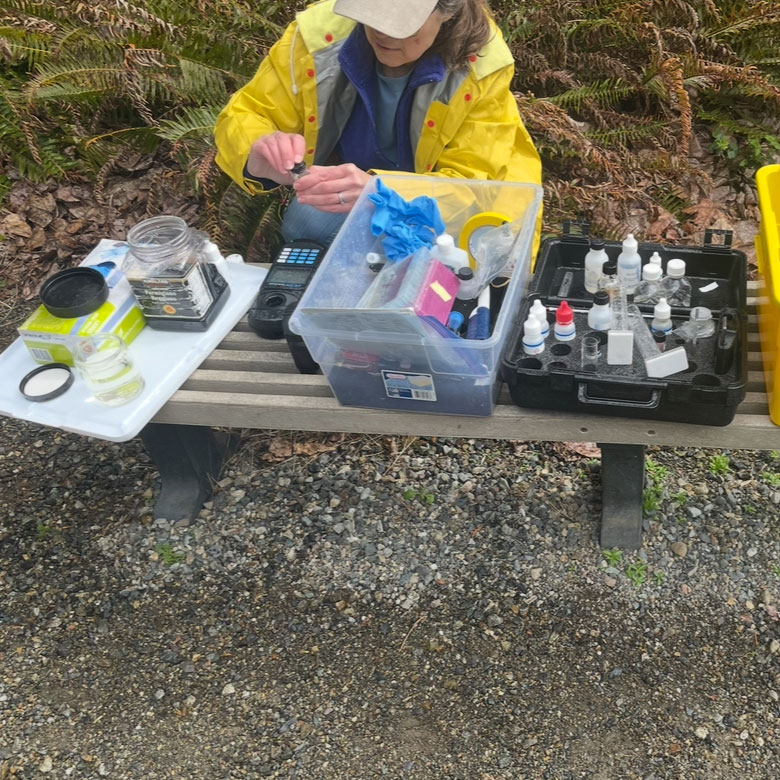
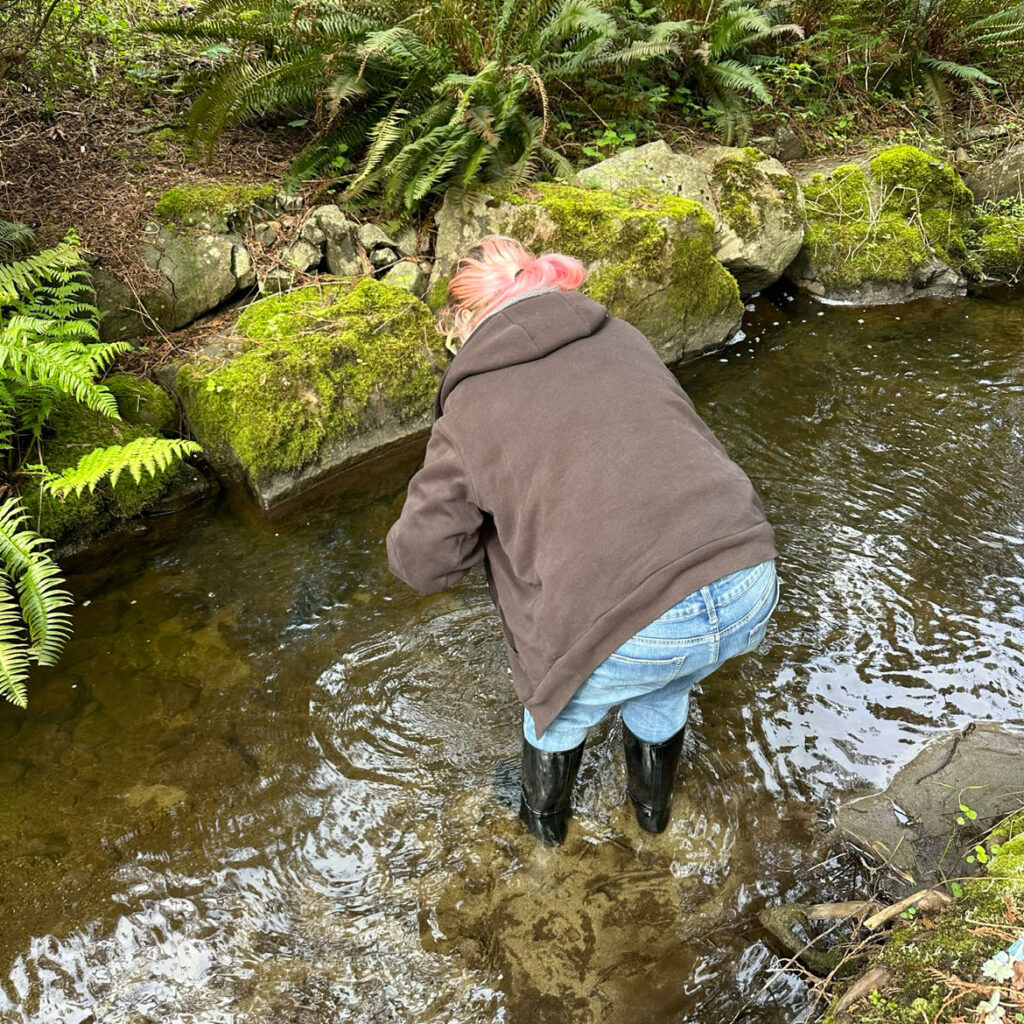
Establishing a baseline
Adelle Nolan was already a Streamkeepers volunteer when they heard about the internship. Nolan graduated from UW Bothell in June with a bachelor’s in Biology and is now a graduate student at the UW in Seattle studying Public Health Genetics.
Nolan hopes to someday be a researcher and a teacher, and like Mandapati, their interest in the internship was fueled by a personal passion for the environment.
“I really like this idea of interdisciplinarity between the social and the biological sciences, and that’s really the main draw of biology for me,” Nolan said. “UW Bothell is super interdisciplinary. That’s the name of the game here — and 100% that was probably the greatest gift I got from going here instead of another college.”
Nolan first heard about the Streamkeepers while taking a biology course taught by Campbell. The internship was an opportunity to go even deeper into stream monitoring, and they jumped at the chance.
Over the course of the internship year, all the students worked to establish baseline data and analyze their findings. They learned how to use various monitoring equipment to collect data on everything from pH and alkalinity to bacteria and nitrite concentrations at several sites they visited throughout the year. Campbell noted that the students even received an introduction into more complex procedures, such as collecting eDNA to identify the presence of vertebrates living in the streams. The data they collected was then uploaded to the Sno-King Watershed database to determine the health of the streams.
Using the baseline data, the students found that the smaller tributaries don’t adversely affect the main watershed equally — one of the driving questions behind the grant application that started the internship program.
“UW Bothell is super interdisciplinary. That’s the name of the game here — and 100% that was probably the greatest gift I got from going here instead of another college.”
Adelle Nolan, Biology ’25
Gaining science and life skills
The internship program offers students the opportunity to continue for a second year — and at least half of the cohort decided to stay on, including Nolan. As a Streamkeeper, Nolan said he enjoys teaching younger students how to participate in stream monitoring and encourages anyone who is interested in participating to give it a shot.
“I love this stuff,” Nolan said. “I have my school stuff that I do where I focus on genetics, but this is how I recuperate outside of my academic focus. This is how I make friends and get outside. I don’t just do it for the internship benefits or to have something I can put on my resume, I do it because I love it — and I think that’s how you get the most out of the experience.”
Campbell said she also enjoys how stream monitoring can bring people together to support each other in a shared goal.
“Every one of these students worked so extremely hard — they were dedicated and responsible, and enjoyed each other and working together,” she said. “I love that they became an interactive group and that they developed ownership of the project.
“This cohort took full advantage of learning about and helping each other in addition to learning the science.”
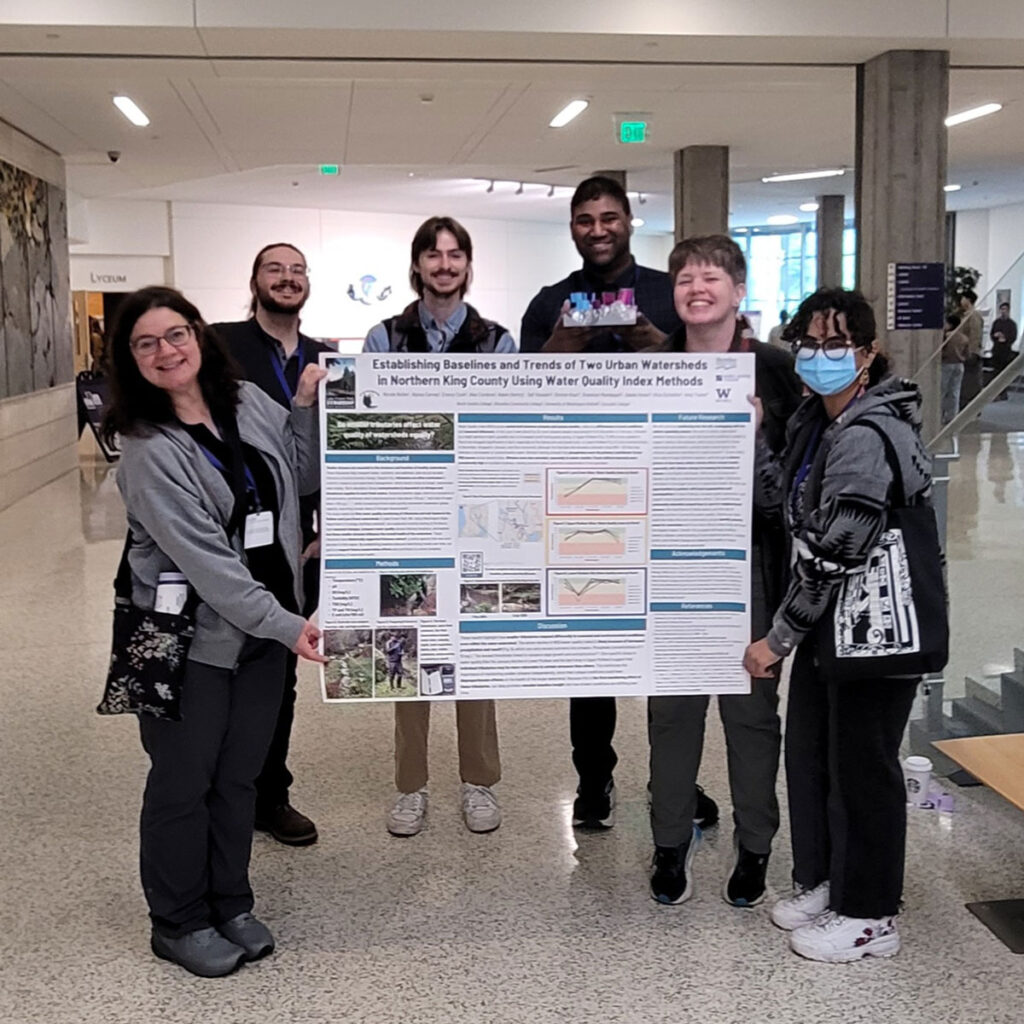
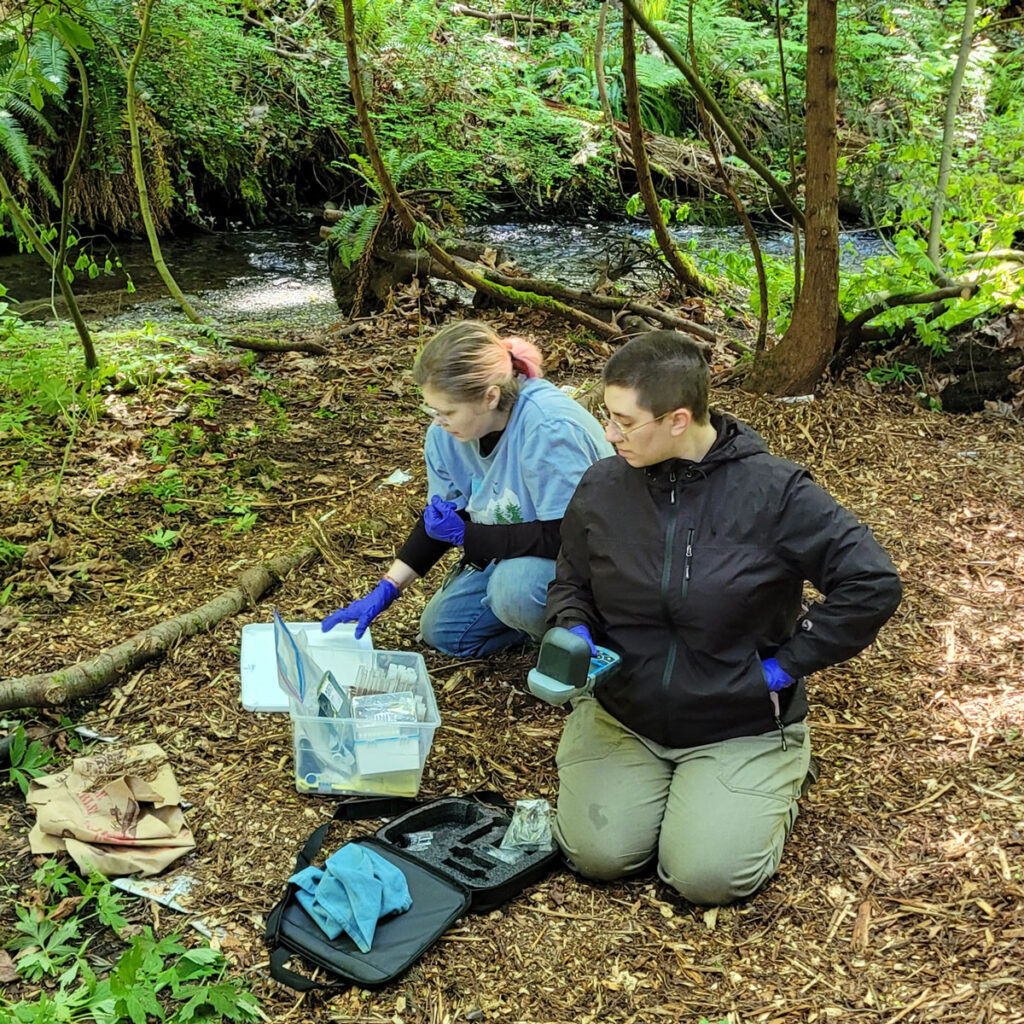
Applications for the 2025-26 USE-IT internships are open through Oct. 17, 2025. Interested students can apply online.
